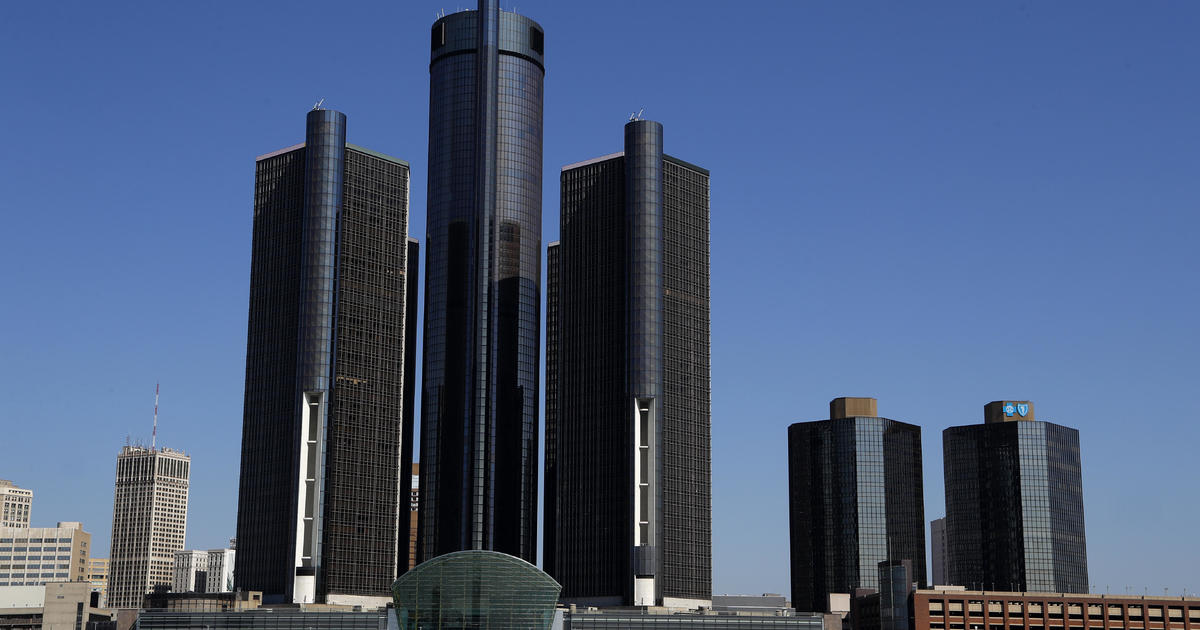Judge Freezes Lawsuits Against Detroit Bankruptcy
DETROIT (WWJ/AP) - It's a win for Gov. Rick Snyder. A federal judge agreed with Detroit on Wednesday and stopped any lawsuits challenging the city's bankruptcy, declaring his courtroom the exclusive venue for legal action in the largest filing by a local government in U.S. history.
The decision by U.S. Bankruptcy Judge Steven Rhodes was a major victory for the Republican governor, especially after an Ingham County judge last week said Snyder ignored the Michigan Constitution and acted illegally in approving the Chapter 9 filing. That ruling and others had threatened to derail the case.
Snyder initially gave reporters in Lansing a one-word response Wednesday afternoon minutes after news broke of the ruling in Detroit.
"Good," he said. A few seconds later he called the decision "excellent."
Retirees had sued, claiming the bankruptcy threatened their pensions that are protected by the constitution.
"If these actions are not stopped, the city would be irreparably harmed. ... These litigants will have due process. They will have their day in court," Detroit attorney Heather Lennox said during two hours of arguments by the city, pension funds and unions.
Rhodes said there's nothing in federal law or the U.S. Constitution that gives a state court a shared role in a bankruptcy.
Questions about Detroit's eligibility to overhaul itself through bankruptcy "are within this court's exclusive jurisdiction," he said.
WWJ Legal Analyst Charlie Langton said Wednesday's developments do not put the pension issue to bed.
"What I found to be more interesting than what the judge said today [is] what he did not rule on today," Langton said. "He did not rule that retirees are not allowed to get a pension. He said that that issue will be adjudicated by this judge, but at some time in the future."
"Bottom line here is that this was what I would call a delay of court action, but not a denial of rights for those people — especially the retirees — who have a vested interest in the city of Detroit," he said.
The courtroom was jammed with lawyers representing some of the thousands of creditors as well as rank-and-file city employees and retirees eager to know the outcome. Some wore T-shirts that said, "Detroit vs. Everybody."
Detroit emergency manager Kevyn Orr, who recommended bankruptcy, sat in the front row. Outside the courthouse, protesters held a banner with a message for Wall Street: "Cancel Detroit's debt. The banks owe us."
Detroit has about 21,000 retired workers who are owed benefits - including former officer workers at city hall, police, paramedics, sanitation crews, firefighters and bus drivers - with underfunded obligations of about $3.5 billion for pensions and $5.7 billion for retiree health coverage.
There are three lawsuits in state courts challenging the bankruptcy.
They mostly focus on a provision in the Michigan Constitution that says public pensions "shall not be diminished or impaired." Pensions have not been frozen or reduced in the bankruptcy so far, but officials say there are shortfalls in the funds and that payouts could be at risk.
Sharon Levine, an attorney for a union that represents city workers, urged Rhodes to let those lawsuits run their course. She said there's no federal insurance for public pensions once they're broken, unlike pensions at private employers.
"Our members who participate at most are at or below $19,000 a year. There is no safety net," Levine said.
Snyder signed off on Detroit's bankruptcy, calling it the only "feasible path" for a city whose population has plummeted to 700,000 from 1.8 million decades ago. Detroit's $18 billion in long-term debt has become an urban millstone.
In March, the governor appointed Orr, a bankruptcy expert, as Detroit's emergency manager. Orr had sweeping powers to reshape city finances but recommended bankruptcy after failing to reach any significant deals with creditors, including Wall Street bankers and Detroit pension funds. Many of those creditors, however, accused him of being inflexible and believe bankruptcy always was the plan.
Detroit has more than double the population of Stockton, Calif., which had been the largest U.S. city to file for bankruptcy before Detroit trumped it last week.
Retirees and city employees are concerned. Lt. James Edwards, who has worked 18 years at the fire department, attended the court hearing Wednesday.
"It seems as though we're going to end up being the patsy for a lot of bad decisions that have been made over the years," he said. "You base your life decisions on promises made to you when you came on the job."
Among protesters outside the courthouse on Wednesday was Marcus Hughey — an employee of the Detroit Department of Transportation for 19 years.
"I didn't work for high wages; I don't live an elaborate lifestyle," Hughey said. "But the end justified the means. At the end of the rainbow, I was supposed to get a nice pension and medical care and the whole nine. That's what we worked for. That's why we stayed."
The bankruptcy case is expected to last a year or more.
Get complete coverage of Detroit's bankruptcy HERE.
(TM and © Copyright 2013 CBS Radio Inc. and its relevant subsidiaries. CBS RADIO and EYE Logo TM and Copyright 2013 CBS Broadcasting Inc. Used under license. All Rights Reserved. This material may not be published, broadcast, rewritten, or redistributed. The Associated Press contributed to this report.)



